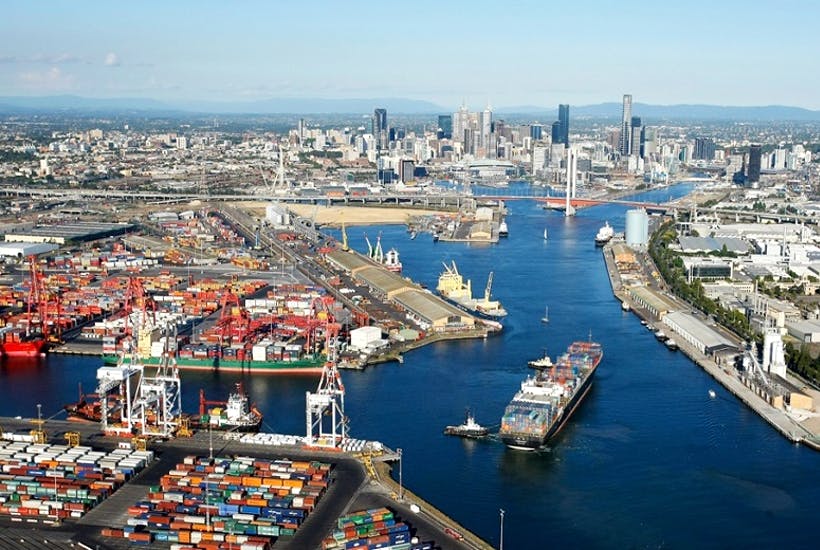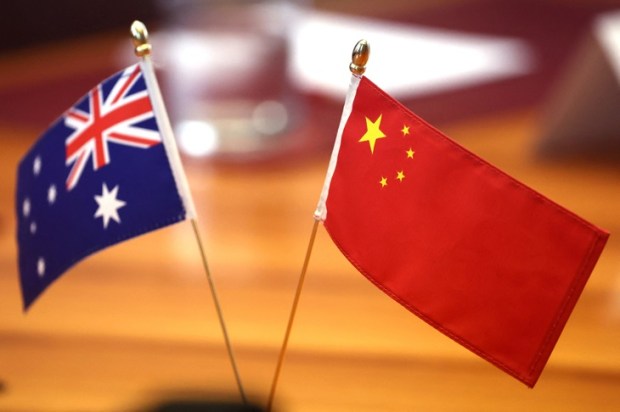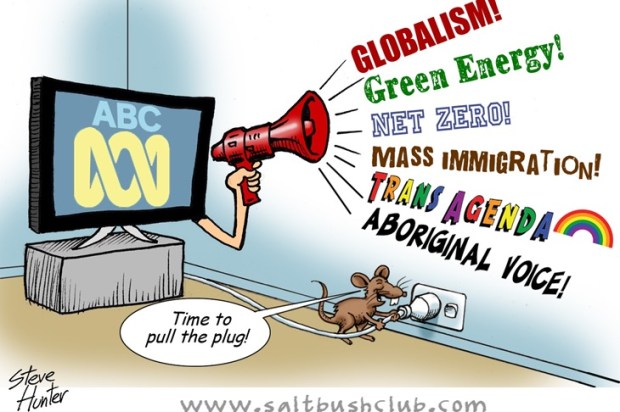Wine. Barley. Beef. Lobsters. Sugar. Timber. Copper. Thermal coal. These are important Australian exports which are increasingly being used as tools of Chinese foreign policy.
The current disruption of Australian exports of lobsters and timber to China by local customs authorities adds to the list of Australian products being blocked entry into China. It also highlights Australia’s core security and economic dilemma with our largest trading partner and our key security ally being geostrategic competitors.
China is Australia’s largest trading partner representing over 27% of trade. Australia’s annual exports to China account for $169 billion with the four biggest exports being iron ore, coal, gas and education services.
The United States is Australia’s most import security partner. According to Paul Dibb, former senior Australian defence and intelligence official, “the ADF is not a credible military force without our close defence relationship with Washington”. It is only because of Australia’s long and trusted relationship with America that Australia can procure the superior military capabilities that provide a regional qualitative advantage.
This policy dilemma will continue to challenge Australia leaders for years to come. Unless there is a change in China, Australia may soon need to choose between sovereignty and suzerainty. But our leaders will not be aided by a social and media commentary suggesting that the Australian government can quickly and effectively develop new markets for Australian exports.
In a recent Lowy Institute poll, 94% of respondents supported the idea that the Australian government should work “to find other markets for Australia to reduce our economic dependence on China”. Good luck with that.
The Australian government has several policy tools which can impact trade outcomes, but none are quick, and none are costless. General macro-economic policy tools such tax, regulation and monetary policy can impact on the general productivity and competitiveness of Australian business. Even last week’s RBA interest rate cut was really a currency policy manoeuvre. But a targeted industry policy focusing on export industries would the costliest and most damaging policy of all.
When it comes to diversifying customers and finding new markets for Australia’s products and services, who is best placed to drive this? The businesses that produce and are invested in their prosperity, or a team of bureaucrats in a distant office in Canberra, who are by design disconnected from the result of their actions?
What Australia is witnessing is China exercising its most effective foreign policy tool. Australians should have no doubt that these trade actions are an expression of China’s displeasure with Australia. On the back of being the first nation to publicly ban Huawei from its 5G network, Australia is also a member of the Quad, a strategic military forum between Australia and China’s three main geostrategic competitors of Japan, India and the US.
China does not have the classic foreign policy tools of other nations. Its diplomatic-soft power is hampered because of its communist-authoritarian governing model, not to mention recent ‘Wolf Warrior’ diplomacy gestures. And whilst China’s military-hard power is rapidly developing, it is highly unlikely to block Australia’s trade lanes to send a message. This leaves economic coercion, and as the second-largest economy in the world, trade is China’s favoured foreign policy lever.
It maybe in Australia’s national security interest to reduce economic exposure to China, but for as long as China is prepared to pay the highest price for and buy the largest volume of Australia’s exports, such a diversification will come at a cost to Australia’s standard of living. To suggest otherwise, including to pretend that a government program can ameliorate this is just wish thinking.
The strategic shifts in the Asia-Pacific region will mean an increasingly inhospitable neighbourhood for Australia. No doubt Australian governments will try to continue to tip-toe on the edge of a foreign policy razor blade but falling off will take skin. And no bureaucratic trade prophylactic will salve this.
The best policy the Australian government can purse to enhance Australia’s trade options would be to undertake reform to enhance Australia’s competitiveness. This would start with tax and regulatory reform.
Got something to add? Join the discussion and comment below.
Get 10 issues for just $10
Subscribe to The Spectator Australia today for the next 10 magazine issues, plus full online access, for just $10.


























Comments
Don't miss out
Join the conversation with other Spectator Australia readers. Subscribe to leave a comment.
SUBSCRIBEAlready a subscriber? Log in